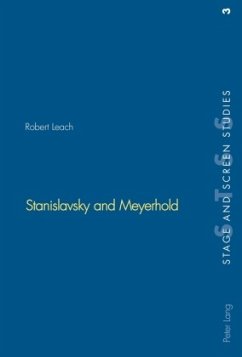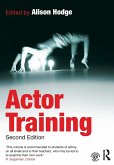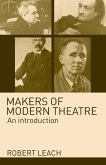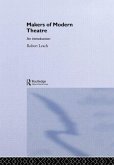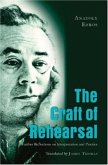This book traces the parallel careers of the two greatest twentieth-century theatre practitioners, the Russian masters Konstantin Stanislavsky and Vsevolod Meyerhold. It is particularly concerned with the simultaneous development of their two contradictory - but perhaps also complementary - acting methods, methods which dominate the best acting practice today. From the same starting point at the Moscow Art Theatre in 1898, Stanislavsky and Meyerhold pursued very different artistic paths through the turbulent last years of tsarism, and the increasingly tormented first decades of communism. Yet by the late 1930s, almost unnoticed, they had begun to work together again. However, their fates under Stalin's tyranny were diametrically opposite: while Stanislavsky was virtually deified by the state, Meyerhold was vilified, tortured and executed. This is a unique story of artistic struggle, as well as of personal jealousy and affection, and it illuminates the methods and potential of contemporary acting practice.
«Wer in die spannende Geschichte des russischen Theaters und/oder in das Drama Mejerchol'ds und Stanislavskijs einsteigen will, findet in vorliegender, von profundem Wissen gespeister Studie eine erkenntnisreiche Lektüre.» (Sabine Koller, Osteuropa)
«...Robert Leach's study can be recommended to any student of theatre for its sympathetic and even-handed treatment of both Stanislavskii and Meierkhol'd and for its attempt to elucidate their theoretical approaches in a clear-sighted and engaging manner.» (Nick Worrall, Slavonic and East European Review)
«Leach's archival research conjoins with his own evident enthusiasm for the subject to present illuminating insights and some exercises and ideas, which to date I had not read elsewhere. The result is a book which is not only vastly enjoyable for its clarity and linguistic liveliness, but also informative in its juxtaposition of theories and practices.» (Bella Merlin, New Theatre Quarterly)
«...Robert Leach's study can be recommended to any student of theatre for its sympathetic and even-handed treatment of both Stanislavskii and Meierkhol'd and for its attempt to elucidate their theoretical approaches in a clear-sighted and engaging manner.» (Nick Worrall, Slavonic and East European Review)
«Leach's archival research conjoins with his own evident enthusiasm for the subject to present illuminating insights and some exercises and ideas, which to date I had not read elsewhere. The result is a book which is not only vastly enjoyable for its clarity and linguistic liveliness, but also informative in its juxtaposition of theories and practices.» (Bella Merlin, New Theatre Quarterly)

